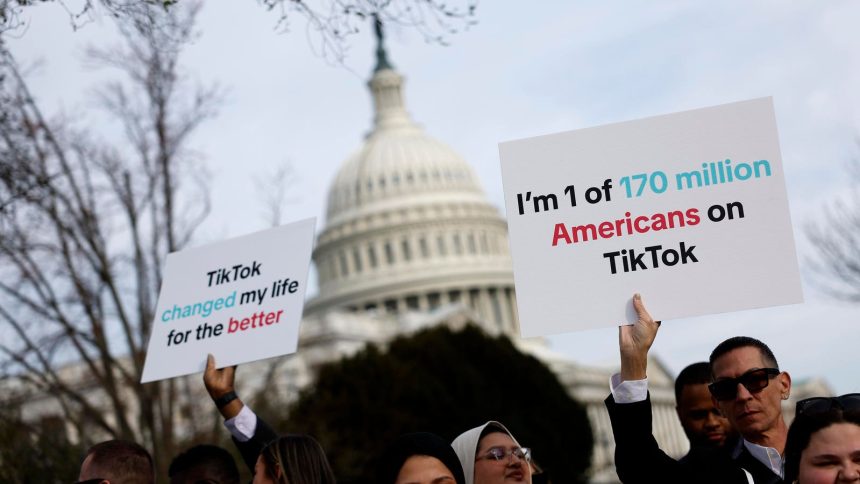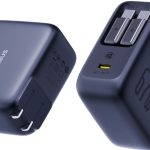The fate of TikTok in the United States hangs in the balance as the Supreme Court prepares to hear oral arguments in a landmark case that pits national security concerns against First Amendment rights. The central question revolves around a federal law mandating that ByteDance, TikTok’s Chinese parent company, divest its ownership of the popular social media platform or face a ban in the U.S. This ban would prevent TikTok from being available on U.S. app stores and from being hosted by American internet service providers. The case has far-reaching implications, not only for TikTok’s millions of American users but also for the future of online speech and the government’s authority to regulate internet platforms based on national security concerns.
Two consolidated cases are before the Supreme Court. One was brought by TikTok and ByteDance themselves, arguing that the forced divestiture violates their First Amendment rights by effectively silencing the speech of the company and its users. The other lawsuit was filed by content creators who rely on the platform for their livelihood and expression, echoing the First Amendment concerns. They contend that the ban represents an overreach of government power and a dangerous precedent for restricting online speech. The federal government, on the other hand, maintains that the law is essential to protect national security from potential threats posed by ByteDance’s Chinese ownership. They argue that the Chinese government could exploit TikTok’s vast user data for espionage, blackmail, or to manipulate content for geopolitical purposes. While the government’s specific evidence remains classified, they assert that it substantiates the need for the ban.
The government argues that the ban does not target speech itself but rather restricts access to a platform controlled by a foreign adversary, therefore not violating the First Amendment. They contend their interest lies in preventing data harvesting and covert content manipulation, not in suppressing specific viewpoints. However, TikTok and its supporters argue that the government has failed to adequately explore less restrictive alternatives before resorting to an outright ban. They characterize the ban as a drastic measure that infringes upon the First Amendment rights of both the company and its users. TikTok maintains that it operates as a U.S. company with editorial discretion over a U.S. speech platform, entitled to full First Amendment protection. Further complicating the issue, TikTok argues that separating from ByteDance would severely compromise the platform’s functionality and user experience, effectively isolating American users from the global TikTok community.
The Supreme Court’s decision in this case will have significant ramifications. While the Court’s ultimate ruling remains uncertain, their prompt scheduling of oral arguments and refusal to temporarily pause the ban suggest a willingness to expedite the process. Prior to the lower court’s ruling, some legal experts expressed skepticism about the ban’s constitutionality, questioning the government’s authority to restrict speech on the platform without concrete evidence of a national security threat. However, a bipartisan panel of federal appeals court judges sided with the government, finding the ban justified and less restrictive than other potential measures. This bipartisan support could influence the Supreme Court’s decision, making it less likely that they will overturn the lower court’s ruling.
Adding another layer of complexity to the case is the intervention of then President-elect Donald Trump, who requested the Supreme Court to delay the ban’s implementation until after his inauguration. Despite not being a party to the lawsuit, Trump expressed opposition to the ban and sought an opportunity to negotiate a resolution with TikTok. Whether the Court will grant Trump’s request remains to be seen, as does the ultimate fate of the ban if the Court upholds it. The ban, if implemented, raises numerous practical questions about its impact on users. It would prohibit U.S. app stores from hosting TikTok, preventing new downloads and updates. It would also bar U.S. internet service providers from hosting the app, potentially disrupting its functionality. While TikTok might explore relocating servers outside the U.S., this would likely lead to eventual degradation of the app’s functionality for American users.
The case has attracted widespread attention and generated various arguments for and against the ban. Free speech advocates, including the ACLU, argue that the ban violates the expressive rights of millions of Americans. National security experts have weighed in on both sides of the issue, with some arguing that existing agreements between the U.S. government and TikTok adequately address national security concerns, while others emphasize the ongoing threat posed by Chinese influence. State attorneys general, members of Congress, and various activist groups have also filed briefs with the Supreme Court, reflecting the deeply divided opinions on this issue.
The TikTok ban, if implemented, represents a significant development in the ongoing debate over the balance between national security and online speech. The Supreme Court’s decision will have lasting consequences for the future of internet regulation, setting a precedent for how the government can address perceived national security threats posed by foreign-owned technology platforms. The case highlights the complex challenges posed by the intersection of technology, geopolitics, and fundamental rights in the digital age. The Court’s ruling will not only determine the fate of TikTok in the U.S. but also shape the landscape for future debates about online speech, national security, and the government’s role in regulating the internet.



